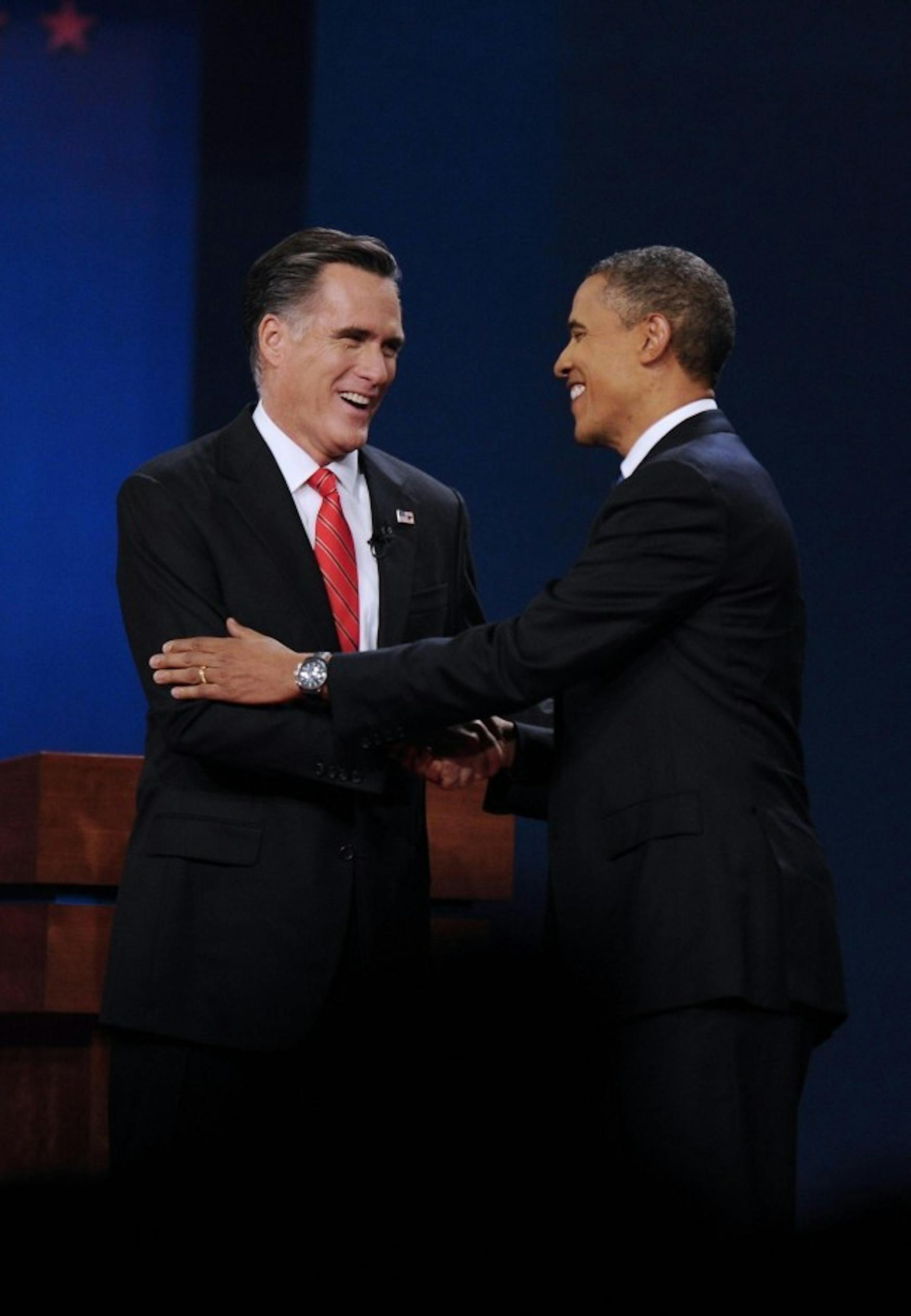University reacts as Obama and Romney debate in Colorado
Last Wednesday, President Barack Obama and former Massachusetts Governor and Republican presidential candidate Mitt Romney met at the University of Denver in Colorado for their first debate. The debate, moderated by PBS' Jim Lehrer, was the first of three and focused on social policy-specifically on the economy, jobs, healthcare and the role of government.
Immediately after the debate, an online viewer poll conducted by CNN projected Romney as the winner, with 65 percent of the vote in his favor, as opposed to 25 percent in Obama's.
Republicans and Democrats alike were surprised by the debate, as Romney seemed to hold his own against the President and reinvigorate confidence in his campaign, which had been dwindling in recent months, according to national polls.
"Heading into Wednesday night's debate, Obama had been riding a wave of momentum since the [Democratic National Convention]," said Ricky Rosen '14, former vice-president of the Brandeis Libertarian Conservative Club and current Brandeis Republicans Club administrator, in an email to the Justice. "At the debate, though, Romney surprised many political pundits who pegged him as a weak candidate," wrote Rosen.
Democratic pundits such as Chris Matthews were disappointed in Obama's performance. In the Oct. 4 episode of his show, Hardball, Matthews asked, "Where was Obama tonight?"
Treasurer for the Brandeis Democrats Ula Rutkowska '15 wrote in an email to the Justice that "[Obama's] performance was reserved, and lacked the character, passion, and enthusiasm that he typically emanates."
However, Romney was criticized following the debate for making statements that fact- checking sites such as PolitiFact and ThinkProgress found to range from "mostly false" to "half true." Much of Romney's rhetoric was also considered by said websites to be very general and vague.
On the other hand, Obama's treatment of topics was "professorial," according to CNN's Wolf Blitzer. Romney also contradicted himself on several major topics such as the tax plan he has been promoting for over a year. This was also argued by pundits such as Rachel Maddow as Romney "attempting to seem moderate. I don't think Obama was ready for that," she said in an Oct. 3 CNN post-debate discussion.
PolitiFact also rated several of Obama's important statements as "exaggerations" and "half true."
The debate's questions were all asked slowly over the course of 90 minutes, and most of them centered on the differences between the candidates' handling of the various issues presented. Each candidate had two minutes per questions and the same time for rebuttals and counterpoints.
Immediately after the debate, several news outlets such as The Huffington Post and MSNBC speculated on whether or not the Romney victory would affect the President's slowly growing lead in swing states such as Ohio and Florida. Despite data and opinion pointing toward a gain in the polls for Romney, not much seemed to change.
"According to the data, these debates often have little effect on the outcome of the presidential election" Prof. Peter Woll (POL) said in an interview with the Justice, "but what will be remembered most is the presentation, rather than the policy. So that is why the media is declaring Romney the winner, because he performed with energy while the President seemed to be asleep."



Please note All comments are eligible for publication in The Justice.